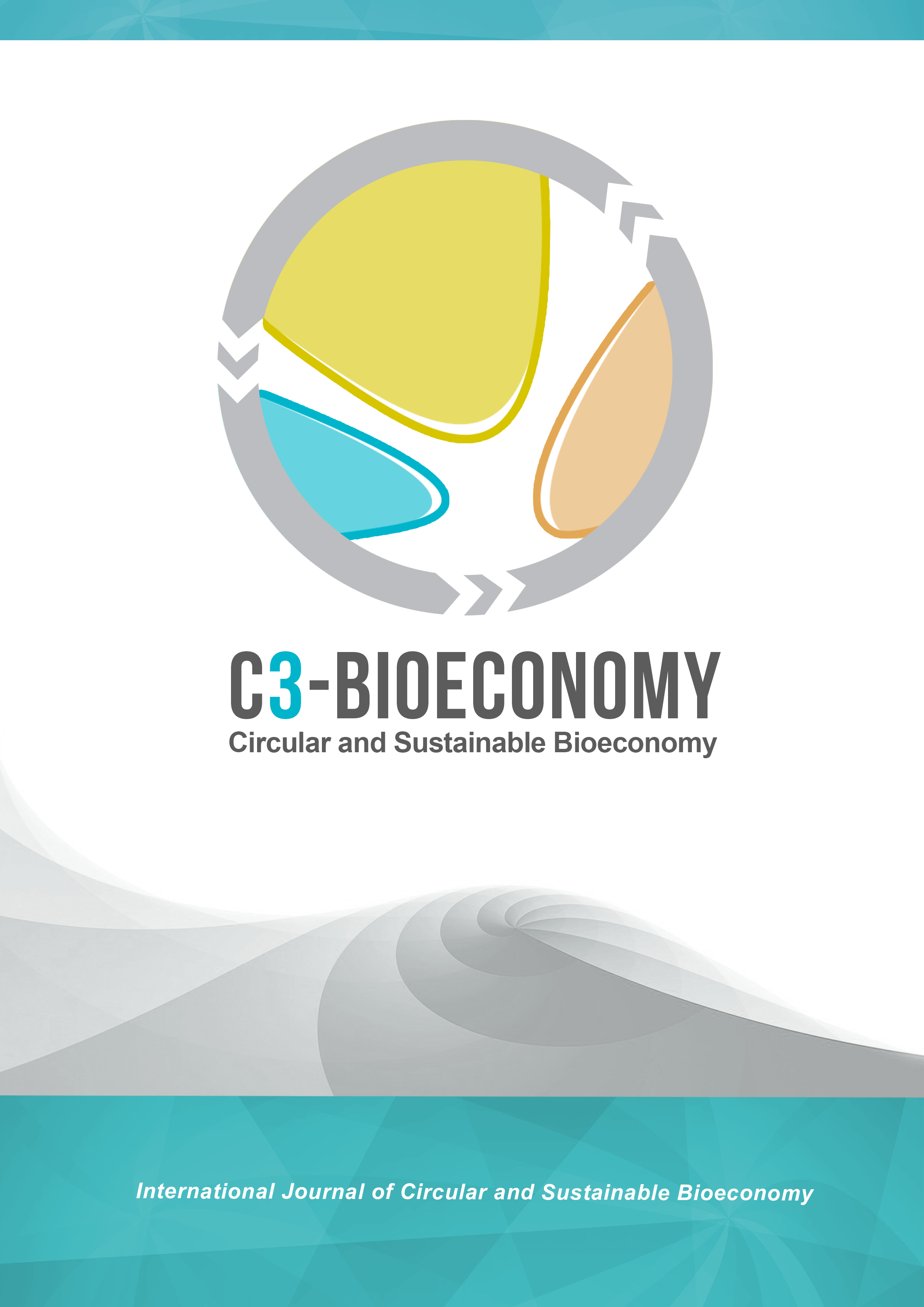Use of biofertilizers for a more profitable and sustainable sugarcane production in Mexico, Biofábrica Siglo XXI
Main Article Content
Abstract
The current model of agricultural production, inherited from the so-called 'green revolution' that took place during the second half of the 20th century, is a model that shows clear symptoms of depletion, because it is an expensive, inefficient and highly polluting model. This model allowed an increase in agricultural production, but with a high ecological cost, since the agrochemicals used, particularly fertilizers, are very inefficient and highly polluting. In the search for alternatives that can respond to the challenges faced by agricultural production, in recent years, biological solutions have been developed using agrobiotechnology. An example of these developments are biofertilizers, whose basis is the use of live microorganisms for the nutrition and development of crops, as well as the improvement of soil fertility.
The Mexican company, Biofábrica Siglo XXI, has been developing agro-biotechnological alternatives for two decades to promote a more efficient and ecological agricultural production system. In sugarcane, they have managed to: 1) increase productivity; 2) increase producer profit; 3) reduce the application of chemical fertilizers up to 75%; 4) improve soil microbial life; 5) increase root development; 6) increased carbon sequestration.
Downloads
Publication Facts
Reviewer profiles N/A
Author statements
Indexed in
-
—
- Academic society
- N/A
- Publisher
- Universidad de Córdoba
Article Details

This work is licensed under a Creative Commons Attribution-NonCommercial-NoDerivatives 4.0 International License.
Proposed policy for journals offering open access. Those authors who publish in this journal accept the following terms:
a) Authors will retain their copyrights, but guarantee the journal the right to the first publication of their work, which will be simultaneously subject to the Creative Commons Recognition License , which allows third parties to share the work provided that the author and initial publication in this journal is indicated.
b) Authors may subscribe other non-exclusive license agreements for the distribution of the work published (for example: place it in an institutional electronic archive, or publish it in a topical volume) provided that the initial publication in this journal is duly noted.
Authors are allowed and even encouraged to disseminate their work via the Internet (e.g., in institutional electronic files or on their website) before and during the submission process, as this can foster valuable exchanges and increase citations of the work published. (See The effect of open access).
References
Camargo-Ricalde S. L., Manuel M. N. De la Rosa-Mera C. J. y Montaño A. S. A. (2012). Micorrizas: una gran unión debajo del suelo. Revista Digital Universitaria. 13(7): 3-19. http://www.revista.unam.mx/vol.13/num7/art72/art72.pdf
Falcón M. (2018). El trabajo decente en la agricultura de caña: alcances y desafíos para la sustentabilidad. México. http://www.atamexico.com.mx/wp-content/uploads/2018/11/5.-ADMINISTRACI%C3%93N-XL.pdf
Grageda O., Díaz A, Peña J. J. y Vera J. A. (2012). Impacto de los biofertilizantes en la agricultura. México. http://www.scielo.org.mx/scielo.php?script=sci_arttext&pid=S2007-09342012000600015
Guerra S. B. E. (2008). Micorriza arbuscular. Recurso microbiológico en la agricultura sostenible. Tecnología en marcha. 21(1): 191-201. https://revistas.tec.ac.cr/index.php/tec_marcha/article/view/1352/1254
Licea-Herrera J. I., Quiroz-Velásquez y Hernández-Mendoza J. L. (2020). Impacto de Azospirillum brasilense, una rizobacteria que estimula la producción del ácido indol-3-acético como el mecanismo de mejora del crecimiento de las plantas en los cultivos agrícolas. Rev. Bol. Quim. 37(1): 34-39. http://www.scielo.org.bo/pdf/rbq/v37n1/v37n1_a05.pdf
Reyes M. (2011). La agricultura de la Revolución Verde a la Revolución Sostenible. México. https://www.eleconomista.com.mx/opinion/La-agricultura-de-la-Revolucion-Verde-a-la-Revolucion-Sostenible-20110907-0005.html
Tortora G. J., Funke B. R. y Case C. L. (2007). Introducción a la Microbiología. 9ª edición. Editorial medica panamericana. Buenos Aires, Argentina. https://books.google.com.mx/books?id=Nxb3iETuwpIC&printsec=frontcover&dq=Introducci%C3%B3n+a+la+Microbiolog%C3%ADa&hl=es&sa=X&redir_esc=y#v=onepage&q=azospirillum&f=false
Biofábrica Siglo XXI http://www.biofabrica.com.mx/
Gobierno de México - Blog de la Secretaría de Agricultura y Desarrollo Rural. https://www.gob.mx/agricultura/es/articulos/cana-de-azucar-una-dulce-produccion-237168
Universidad Zaragoza http://www.unizar.es/centros/eps/doc/HuelladeCarbonoLALGranadaSept2010_d.pdf
Ley de Desarrollo Sustentable de Caña de Azúcar – Diario Oficial de la Federación, 22 de Agosto, 2005. http://extwprlegs1.fao.org/docs/pdf/mex69602.pdf


